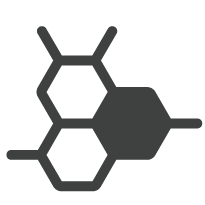Producer


Boulder Valley Honey
, ,
About Us
Our primary mission since 2013 is to build a sustainable apiary here on the greater front range to keep pollinators for decades to come. What this means to us is supporting healthy honeybees with resilient genetics through our local queen rearing process, raising them in beehives manufactured at our own woodshop from local timber, and extracting our honey in a traceable manner. In 2022 with the help of RESTORE Colorado and Zero Foodprint we transformed an acre of hillside into a native pollinator paradise by planting over 400 native shrubs and xeric perennials at our farm in east Boulder. We were also awarded a grant from Boulder County's OSCAR/Sustainable Food and Ag program to host in-person educational opportunities where community members can work a beehive in person with suits and tools. Come learn about bees with us!
In addition to producing honey, since 2019 we have acted as the University of Colorado Biofrontiers Institute's head beekeeper, where we help maintain and study bees at scale in a scientifically rigorous setting. Several labs conduct research to better understand bee behavior and the challenges they face, and we appreciate the opportunity to further the knowledge, processes, and tools in the evolving fight to sustain healthy honeybees.
In addition to producing honey, since 2019 we have acted as the University of Colorado Biofrontiers Institute's head beekeeper, where we help maintain and study bees at scale in a scientifically rigorous setting. Several labs conduct research to better understand bee behavior and the challenges they face, and we appreciate the opportunity to further the knowledge, processes, and tools in the evolving fight to sustain healthy honeybees.
Practices
Happy bees make delicious honey! All honey produced by Boulder Valley Honey is produced right here in Boulder County. We will never import and repackage honey from other producers. All honey is extracted raw, gently filtered, and never pasteurized. We carefully isolate each honey from its hiveyard to capture the spectrum of forage available to each area, with Table Mountain sporting wild-pea, russian sage, and various prairie wildflowers. The Farmstead honey primarily contains forage from organic pastures including yellow trefoil, catalpa, black locust, and alfalfa. The Orchard honey is from a century old Apple orchard at the base of Mt. Sanitas, and these bees have a diversity of forage from north Boulder's pollinator friendly basswood trees and native shrubs. The diversity of each location can be seen in the variation of taste, consistency, and color between each and we aim to capture and celebrate this difference.
